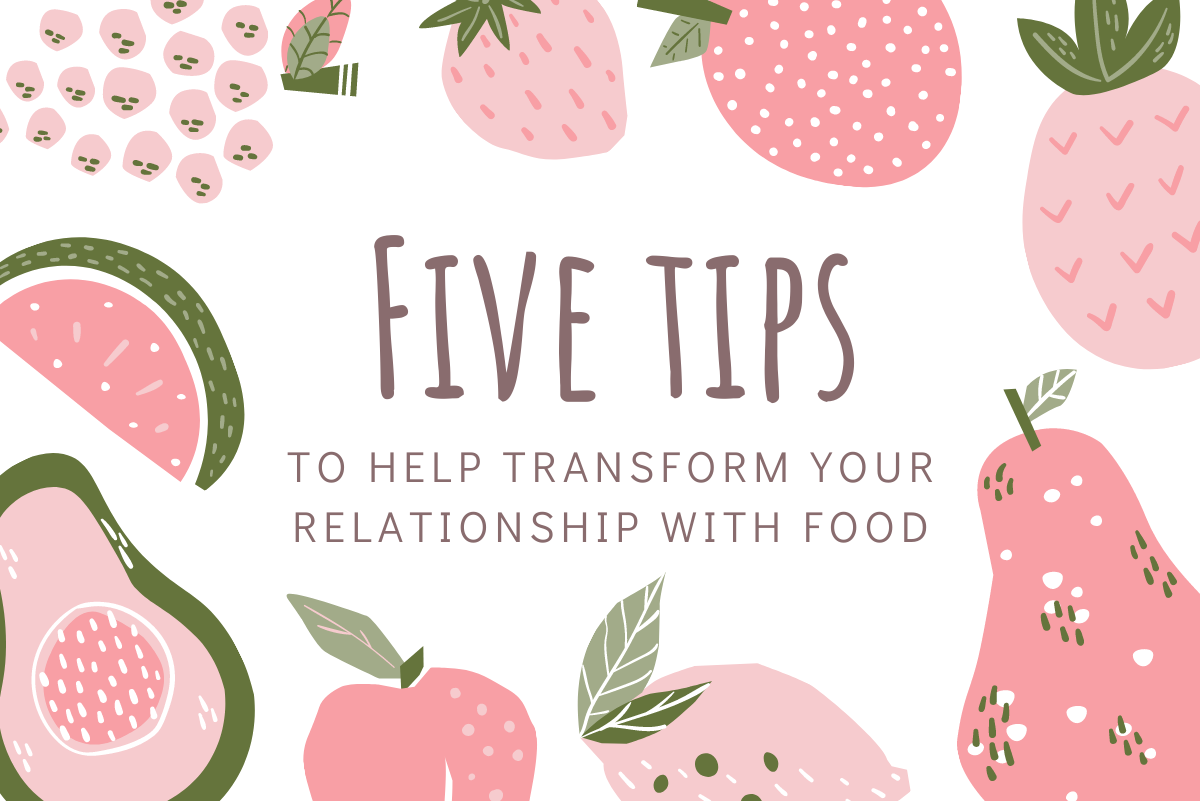Have you ever thought about your relationship with food? Would you consider it healthy or unhealthy?
Having a healthy association with food is a key component to overall well-being. Have you ever thought about your relationship with food? Would you consider it healthy or unhealthy?
Do you obsess over what you eat? Does food stress you out? Do you have strict rules and then feel guilty when you break them? These all could be signs you need to transform your outlook with food and work with a Registered Dietitian on a plan that fits your goals. Below are a few guidelines to get you started.
Tip #1: Minimize categorizing foods into “good” or “bad”
All foods can fit into your eating plan. There is no such thing a good or bad food. It is usually the experience with eating with which we associate our feelings. Choose to eat for nourishment and do not avoid foods due to fear. Identify the foods and situations that you find enjoyable! This will encourage you to eat the foods that make you feel good!
Tip #2: Don’t let food make you feel guilty
If you did not make the best food choices at a meal, do not react by overdoing your workout or restricting yourself at your next meal. This will cause you to have given in to your guilt and associate that meal with unenjoyable experiences. Forgive yourself and move forward.
Tip #3: Don’t let food rule your life
You don’t have to gravitate towards “diet” food only. Don’t forbid anything. Balance is key! Being too restrictive, strict, or obsessive will set you up to fail. Everything in moderation will fit into your eating plan. Enjoy a donut, it’s ok!
Tip #4: Be mindful
Listen to your body's cues that tell you when to eat and when to stop. Are you physically hungry or is it emotionally charged? We usually crave high-calorie foods when stressed, tired, nervous, or mad. It is important to find other ways to deal with your emotions besides food. Remember it takes 20 minutes for our brain to signal to our bodies we are no longer hungry. Eating takes time. Allow yourself to have it.
Tip #5: Take precautionary measures to set yourself up for success
Don’t sit down with the entire bag of potato chips. If you find yourself craving French fries or pizza, pick a time to enjoy those foods when you aren’t starving. Don’t stock your pantry. with problematic foods. Keep your snacks and your treats separate.
If your relationship with food is something you need to work on, change doesn’t happen overnight. Eat to nourish your body and focus on the foods that make you feel good. We should enjoy eating and not worry about having a “treat” every now and then. When you can easily feel guilt-free for eating a cup of ice cream instead of the whole tub you are on your way to your new relationship with food!




